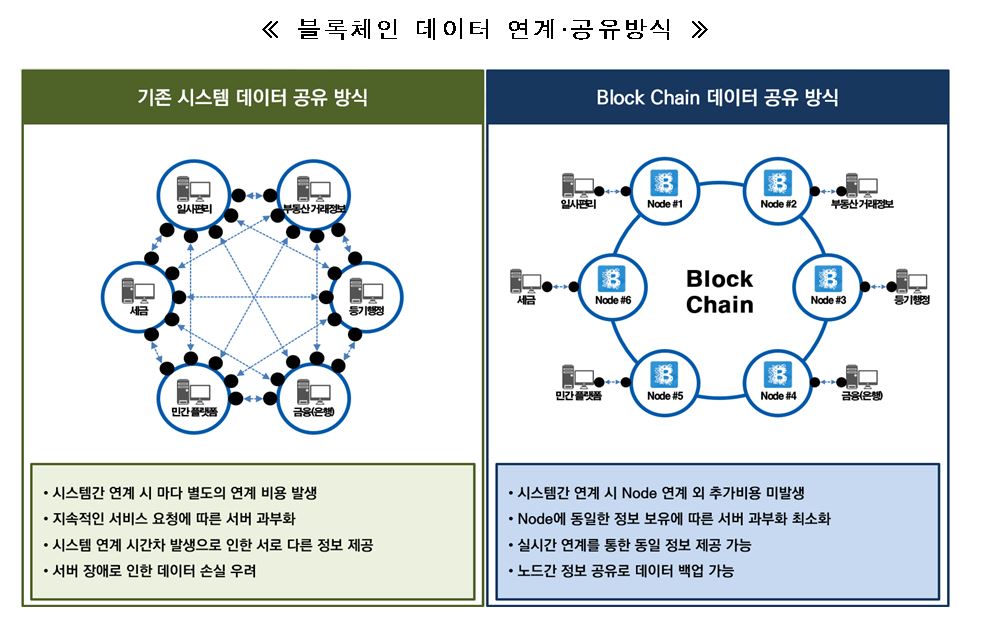Ministry of Land, Infrastructure and Transport will build a blockchain-based real estate transaction platform by 2024.
On the 29th, the ministry said, “We plan to build a blockchain-based real estate transaction platform using information and communication technology (ICT) to create an environment where public institutions, etc. can transparently and quickly access and utilize real estate information.” As a result, it launched an informationalization strategy plan (BPR/ISP) project to build a blockchain-based real estate transaction platform from the 3rd to the end of this year.
The ministry plans to build a blockchain-based real estate transaction platform for 20 to 3 years from 2022 after detailed business plan, detailed planning for each stage, and detailed budget calculation.
Currently, real estate transactions are conducted in the order of checking goods, signing a contract, applying for a loan, and changing the registration. At each stage of the transaction, the participating brokers, banks, and lawyers go through the process of acquiring and submitting real estate documents required for the transaction in paper form.
As a result, people are exposed to criminal risks due to forgery and forgery of official documents in the transaction process. Also, as corona spreads across society, offline-oriented real estate transactions are becoming more difficult.
The complexity of current real estate transactions will also be simplified. In the current transaction process, the contract must first be verified by viewing or issuing real estate paper documents, such as a certificate of all registrations for the property, and a land register when a person has purchased an apartment through a mortgage,
When the person applies for a loan, he/she issues an identification document and a full certificate of registration of the collateral and submits it to the bank. In order to transfer ownership, he/she has to go through a complicated process, such as delegating to a lawyer and submitting identification documents and land registers to the registry again.
▲ Blockchain real estate platform data linkage and sharing method
(Image source = Ministry of Land, Infrastructure and Transport)
When a ‘blockchain-based real estate transaction platform’ is established and an apartment contract is executed, real estate documents for the transaction target are automatically checked and verified in real time by each institution. This reduces the need to submit paper documents or visit related organizations such as banks. This is because the method of real estate transaction required for real estate transaction is issued in paper form and converted into a data format based on blockchain technology that is highly transparent and complementary.
▲ Comparison of documents-oriented real estate transactions with blockchain-based platforms
(Image source = Ministry of Land, Infrastructure and Transport)
The Ministry of Land, Infrastructure and Transport will first prepare a plan to share the real estate documents of the Real Estate Comprehensive Study System (ILSA) as data based on blockchain technology. In addition, the ministry will form a public-private council to discuss all registration details and resident registration. After that, it plans to include real-time data sharing plans in an information strategy plan. In parallel, plans to improve related laws and systems will also be established.






